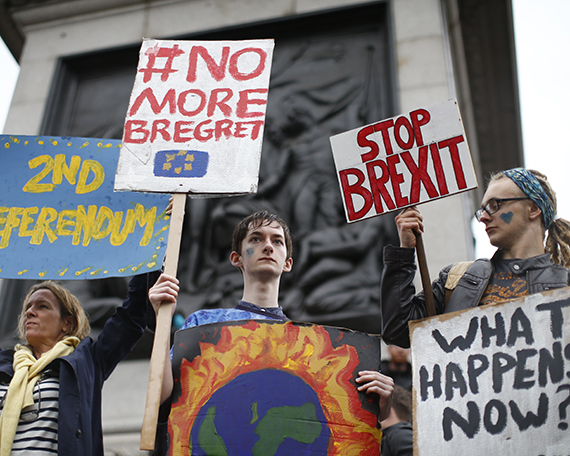 There has been a huge amount of recent conversation about how Brexit will affect the UK’s residential sector, with the prevailing opinion – and more than just a few alarming headlines – warning that we are likely to see a crash.
There has been a huge amount of recent conversation about how Brexit will affect the UK’s residential sector, with the prevailing opinion – and more than just a few alarming headlines – warning that we are likely to see a crash.
Some commentators have warned of a 2008-style fall in prices led by the London-dominated prime and super-prime markets. On 24 June it was reported that a £7m offer on a Kensington flat was withdrawn – apparently case in point of the immediate impact of the EU referendum result.
With all this noise, it can be easy to forget that the Brexit vote has not actually changed anything in practice that would logically lead to a decline in prime residential property.
Unhelpful rhetoric, however, just might.
The first point to highlight is that the UK remains in the EU, and most likely will do for at least two years, and no new policies or laws have been passed that affect property. The deal to be struck with the EU will not be clear for some time, but even in a highly unlikely failure to secure passporting rights there is no guarantee that finance jobs will relocate elsewhere.
The only immediate practical impact of Brexit is a weaker pound, which has only served to make London a more attractive investment opportunity for foreign buyers.
Fundamentally, London hasn’t changed since June. It is still safe, still stable, still a cultural and business hub – all the things that make it an attractive city to live in. People moving to the capital for work, both from inside and outside the UK, and Londoners themselves will continue to need homes.
Brexit itself has not harmed London’s attractiveness as a global city, but the new chancellor must avoid anti-business or anti-foreign rhetoric that certainly would. This is because it is rhetoric, more so than practical policy, that has been the main factor affecting the prime residential market in recent years.
Prices, particularly at the super-prime end of the market, had already fallen somewhat prior to the EU referendum. Much of this was the result of government rhetoric. For example, talk of creating a register for foreign owners of UK property sent an anti-foreign message and damaged London’s reputation as an open and inclusive city.
Similarly, the 12% stamp duty rate does not act as a practical barrier for the majority of prime property buyers. It does, however, send anti-business signals. The more recent failure to guarantee the status of the 3m EU citizens living and working in the UK has the same effect – no practical change but significant reputational damage.
Wealthy individuals who buy prime and super-prime residential property are unique in that they are highly mobile and can typically choose to live in New York, Hong Kong or Paris if London no longer feels like the kind of city in which they would want to live, work and raise a family.
Britain being outside of Europe does not practically change that, but any sense that we have turned our back on the world just might. The last administration was often guilty of rhetoric that damaged the prime residential sector; this government should not repeat these mistakes.
Javad Marandi is a residential investor











